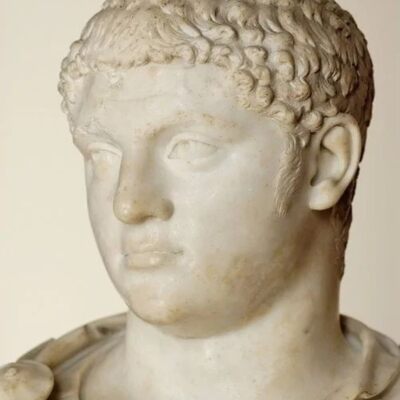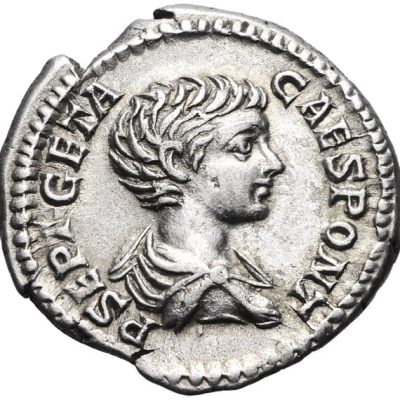Chapters
| Name | Lucius Publius Septimius Geta |
|---|---|
| Ruled as | Imperator Caesar Publius Septimius Geta Augustus |
| Reign | 209 – 26 February 212 CE |
| Born | 27 May 189 CE |
| Died | 26 February 212 CE |
Geta was born on May 27, 189 CE in Rome as Lucius Publius Septimius Geta. He was the younger son of Emperor Septimius Severus and Julia Domna and brother of his co-ruler Caracalla. Officially, he was an august from autumn of 209 CE until his death. Murdered on the orders of his brother Caracalla, died in the arms of his mother.
Geta was born when his father was the governor of the province under Emperor Commodus. At the time of his father’s death, in the year 211 CE Geta was 22 years old and, like his older brother, he carried all the titles due to the emperor. In his testament, Septimius Severus gave equal power to both brothers, without dividing powers or empire territory. This fact alone made cooperation between them difficult. However, the deeper cause of the conflict between the brothers was the sincere hatred they had had for their early childhood. They were not resisted by the consent forced over the father’s grave – to which the mother Julia Domna persuaded her co-emperors. The young Caesars’ only consensus decision was to end the three-year expedition to Britain – during which their father died (early 211 CE) – and return to Rome. At that time, imperial propaganda promoted a positive image of the imperial family in society. Before his death, Septimius Severus had given each family member a separate competence: Julia Domna was the sons’ adviser, Caracalla replaced the father in most of the duties, and Geta was responsible for clerical and administrative matters.
After returning to the capital, each of the brothers occupied a separate part of the palace on the Palatine and put his guards on it. Emperors met only at official ceremonies. One of them was including their father among the gods (deification). The rivalry between the brothers grew stronger and slowly spread over the whole of Rome, in which almost every citizen was forced to take one side. The lack of division of powers caused chaos, which is why the project of territorial division of powers was created. The idea, however, did not materialize – according to Herodian’s account – due to the opposition of the empress’s widow. Meanwhile, the brothers trusted each other less and less, accusing each other of trying to physically remove their opponent. The more aggressive in attacking his brother was the elder Caracalla, who tried to kill Geta during Saturnalia in 211 CE.
Murdering brother
The failed attempt on her brother and Caracalla’s very aggressive behavior made Geta more and more popular. So Caracalla tried a different path. From the beginning of 212 CE, he made gestures showing the will to give up the fight. Striving for a formal reconciliation with Geta, he arranged a meeting in their mother’s chambers on February 26 this year. The brothers were supposed to be there alone – unarmed. However, Caracalla betrayed his brother and, coming there with the centurions, ordered his execution. Geta died trying to take refuge in his mother’s arms, who herself was injured trying to save her son. Caracalla immediately announced that he had been attacked by his brother and was saved only with the help of faithful friends.
Geta was sentenced to the worst kind of punishment applied to the hated emperors after their death – his name was erased from all official documents (the so-called damnatio memoriae ), all evidence of his existence was obliterated and no mourning was allowed – even for his own mother. To this day, very few portraits of the young emperor Geta have survived.
Caracalla took advantage of the situation after her brother’s death and introduced mass persecution of his political opponents. Cassius Dio recalls that nearly 20,000 men and women lost their lives as a result of proscription.








